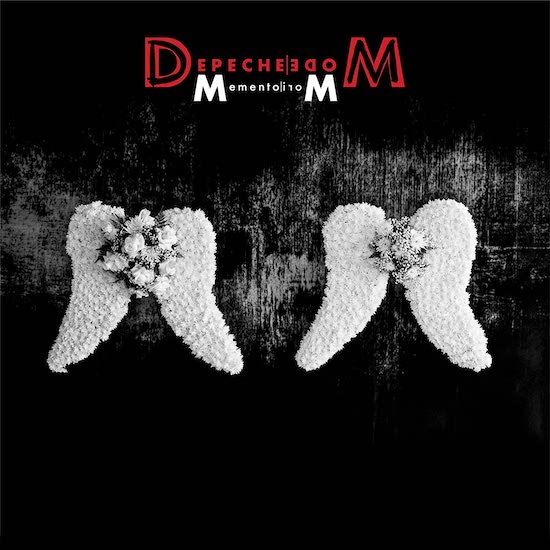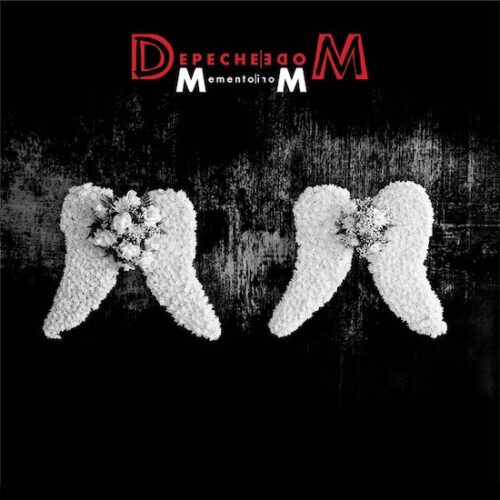As music fans of a certain age, we’ve had it hard in the last few years. Not to dismiss anyone else who died before them, but the triple whammy of David Bowie, Prince and George Michael hit hardest – a trio of geniuses snatched from our orbit of joy. We thought we’d acclimatised to a world after that, but then it was relentless: Mark Hollis, Keith Flint, Terry Hall, Weatherall, Sarah Harding, Scott Walker, Florian Schneider, Olivia Newton John, Leonard Cohen, and more and more who’d illuminated our existences gone before their times.
Those elements of our shared culture, the cultural patchwork we wrapped ourselves in that was now starting to fray or unthread, of those parts of things that had spoken to us, but now unlikely to feel the same ever again. You’d listen to their music and feel sadness, and yet also despair because it felt like the cunts, grifters and noise that infiltrate our every hour are still there drowning out the fun we felt and the magic they gave us. Hourly reminders that our own mortality is ebbing away, too, and the only time you seem to get together with the people you love would now be at funerals or memorials.
When the news of Andy Fletcher’s death came, it was a shock – he was neither the voice or the songwriter in Depeche Mode, yet he was a presence that seemed to keep the two figureheads on track. The one who’d suggest what single they should lead with, the one who allowed the egos to work out the songwriting share while he tinkered around in the background on the nuts and bolts of the band. No one thought that when Depeche Mode first arrived in 1980, as Mute’s real-life silicon teens, that over forty years on, these men now in their early sixties would still mean the same to us. And yet here we are, on a fifteenth album, trailed by interviews with the last two standing – two people who’ve had to adjust to their new predicament and the lack of a buffer that kept them in check and stopped them tearing chunks out of each other. The release of Memento Mori inevitably focuses on the loss of Fletch. Every date they play on their giant upcoming world tour will bring that loss back to them night after night.
Fletch and loss is the presence that haunts Memento Mori. It’s the post-Fletch album, in a catalogue where A Broken Frame was the post-Vince Clarke album and Ultra was the post-Alan Wilder album. Longevity has its downsides, but Depeche Mode – Martin and Dave – carry on, as we all do when we lose someone we love. Because to stop or let things and emotions and events take us over, means part of us has died too, and so we accept the transaction of that loss as it embeds itself into our being.
Depeche Mode have long been in their own lane. They’ve carved out their own gyratory system, a happy little B-road of twinkling pop gems giving way to a Highway of Rock – or a Depeche Road, if you will. There’s been none of the retro behaviour that may have befallen some of their one-time contemporaries. No sharing a bill with Sinitta, Billy Ocean and two thirds of Johnny Hates Jazz playing 30-minute sets at the tax-bill-friendly retro festivals under the name Martin Gore’s Depeche Mode Experience or Dave Gahan’s A La Mode. Very little, if anything, in the way of album anniversary tours, or any need to rerecord their biggest hits with an orchestra.
Since 1980 they’ve been their own scene, first as a magnificent singles turn, becoming progressively bigger, adored by stadiums of fans worldwide, with the (pre-Covid, at least) regularity of an album and tour every four years.
With this, their fifteenth studio album, both that four-year cycle and the band themselves have encountered changes. It would’ve been fairly daft to have scheduled and gone out around the planet during 2021. What’s more, they’re now a duo, having made their last appearance as a trio via a Zoom acceptance speech for the Rock & Roll Hall Of Fame in 2020.
Produced by James Ford and Marta Salogni, work had already tentatively begun on Memento Mori in 2019, but obviously with an enforced break, everything was halted for a bit. It’s likely that it’s a very different album to what may have been envisaged, shorn of the concerns that made Spirit so angry, railing at the state of everything. Memento Mori is almost warm and reflective. There are still the foreboding sounds and moments that you would expect with the Modes, such as on the opener ‘My Cosmos Is Mine’, which sets the scene with ominous scrapes and blasts, sounding like it could have been designed to be the live show opener (if they’re late, the line “Don’t question my stage time” will always bring a smirk).
Loss is never far from the lyrics. On the Gore/Gahan co-write Wagging Tongue’, which opens with the melodic bounce of Trans-Europe Express-era Kraftwerk before plunging into fluttering murk. The line “Everything seems hollow when you watch another angel die” seems heartfelt. Tickles of Computer World pop up on ‘People Are Good’, with a tease where it feels like it’s about to go into that title track’s riff. Lyrically the song itself is a jaded update of the frustrated optimism of ‘People Are People’, where rather than frustratedly wonder why we get along so awfully, Gahan has to “keep reminding myself that people are good” and “keep fooling myself that everyone cares,” which is a mantra we can all relate to when faced with daily shithousery.
First single ‘Ghosts Again’ – the one where everyone was looking for some clues or expecting maudlin reflection – is one of their most direct pop-facing delights of recent years, the sort of warm invite that a fan of the commercial end of things like Fletch would’ve approved of. It’s one of four co-writes with Psychedelic Furs’ Richard Butler who Gore had connected with during lockdown. You can imagine Gahan didn’t have to do too much with the intonation and original demo, as the Butlerisms shine through in a reflection of lost time that feels universal. Likewise, ‘Caroline’s Monkey’ which almost possibly unconsciously revisits the Caroline of ‘Pretty In Pink’, who has clearly taken a turn for the worse over the years.
The cinematic ‘Don’t Say You Love Me’ sees Gahan pitched between Leonard Cohen and Scott Walker essaying Jacques Brel-y bon mots with its verses about “you are the singer; I am the song”. The electropop turbulence of ‘My Favourite Stranger’ feels as though Butler is identifying the relationship of Gahan and Gore (“puts words in my mouth, all broke and bitter”). Maybe an outside force has helped them identify or at least expand on what winds each other up. ‘Soul With Me’ sounds like a grandstanding showstopper sung by Gore as he’s careering into flames, making peace with the final act, with all the pizazz of Kurt Weill and the purity of Brian Wilson, and mascara running down the faces of a maniacally grinning Busby Berkeley-esque ascent. It’s the sort of glammy, darkly comic showbiz moment – a ‘My Way’ that’s not for cunts – that’s likely to be the new chosen soundtrack to many a Mode fan’s cremation. It’s absolutely fantastic.
Memento Mori is so full of high points. ‘Before We Drown’, Gahan’s co-write with touring Moders Peter Gordeno and Christian Eigner, feels so imbued with Depeche Mode-ness that it’s almost an AI interpretation of Depeche Mode. The whole album summons its own finale with closer ‘Speak To Me’, which pulses towards discordancy, reminding you that with the flip-side of bittersweetness comes the inevitable ends that we all must face.
Memento Mori is an absolute triumph. It’s almost the real songs of faith and devotion that they’d spoke of thirty years ago. Universal themes of mortality, love, anxiety; a handful of pop gems and what feels like an economical stripping back of the stadium-ness of previous works, making it their best long player this side of the century. It’s as if losing their barometer of public opinion has given them new focus, a determination to work together and be on their best behaviour in honour and tribute to their best friend.



